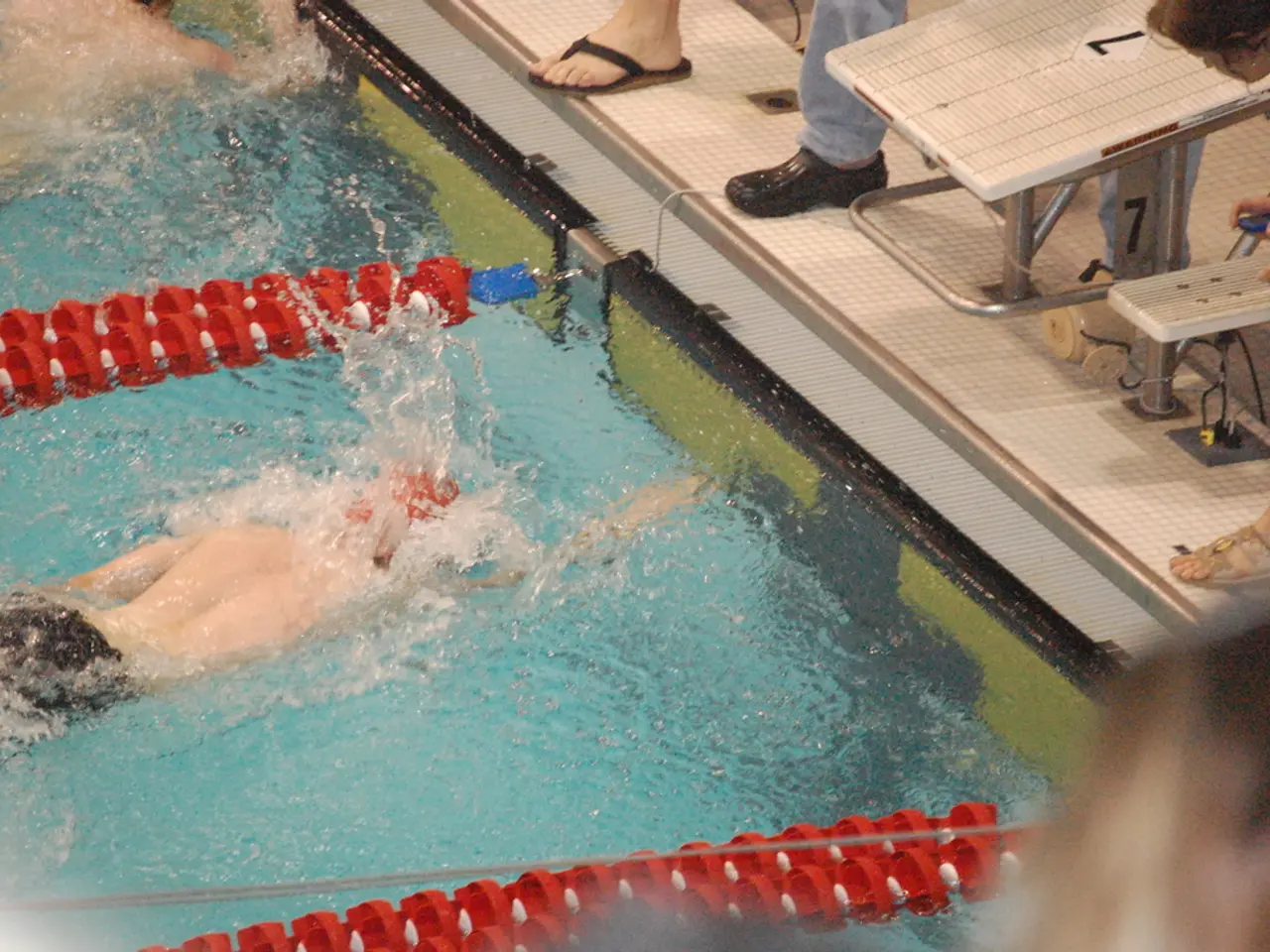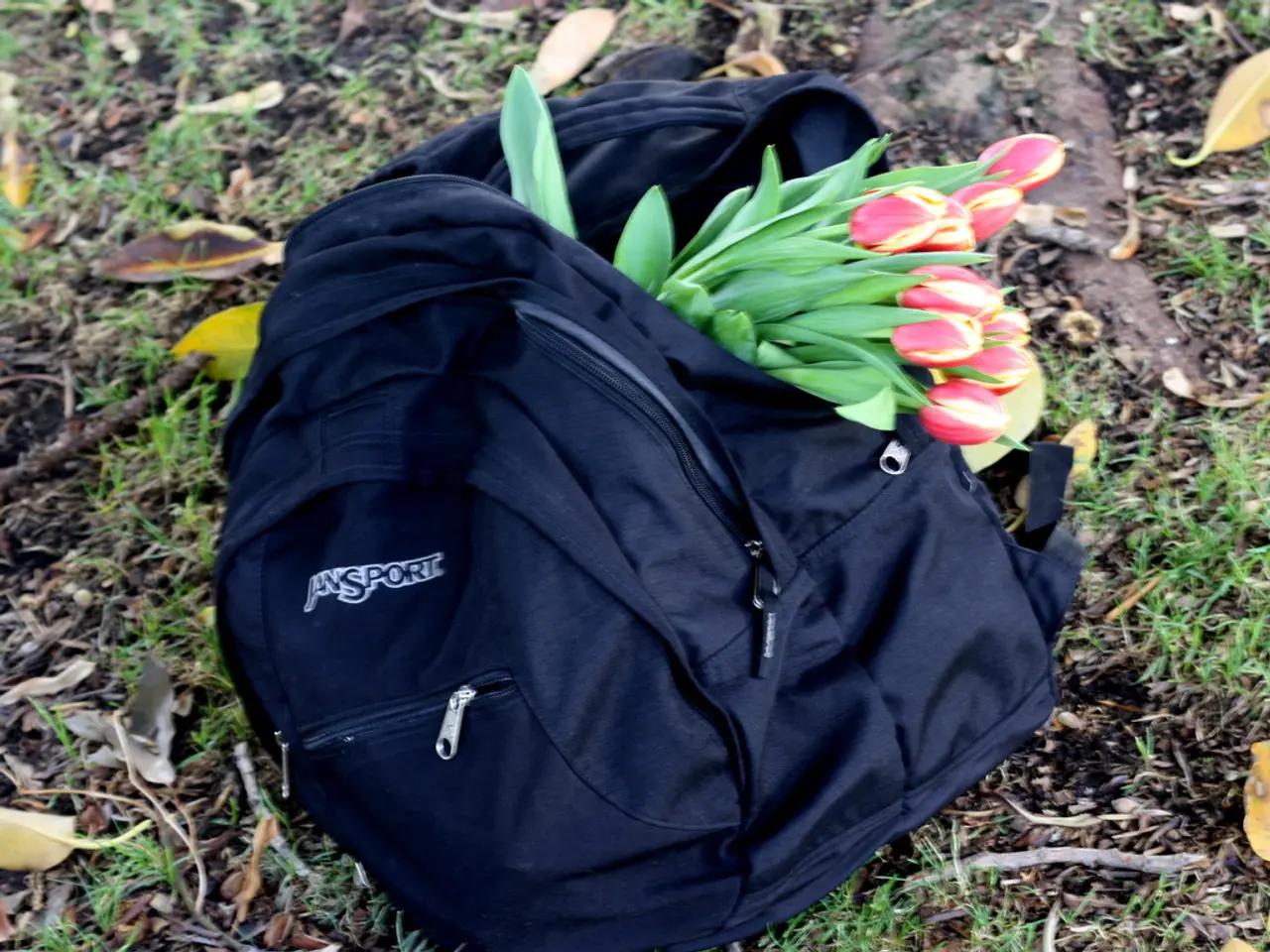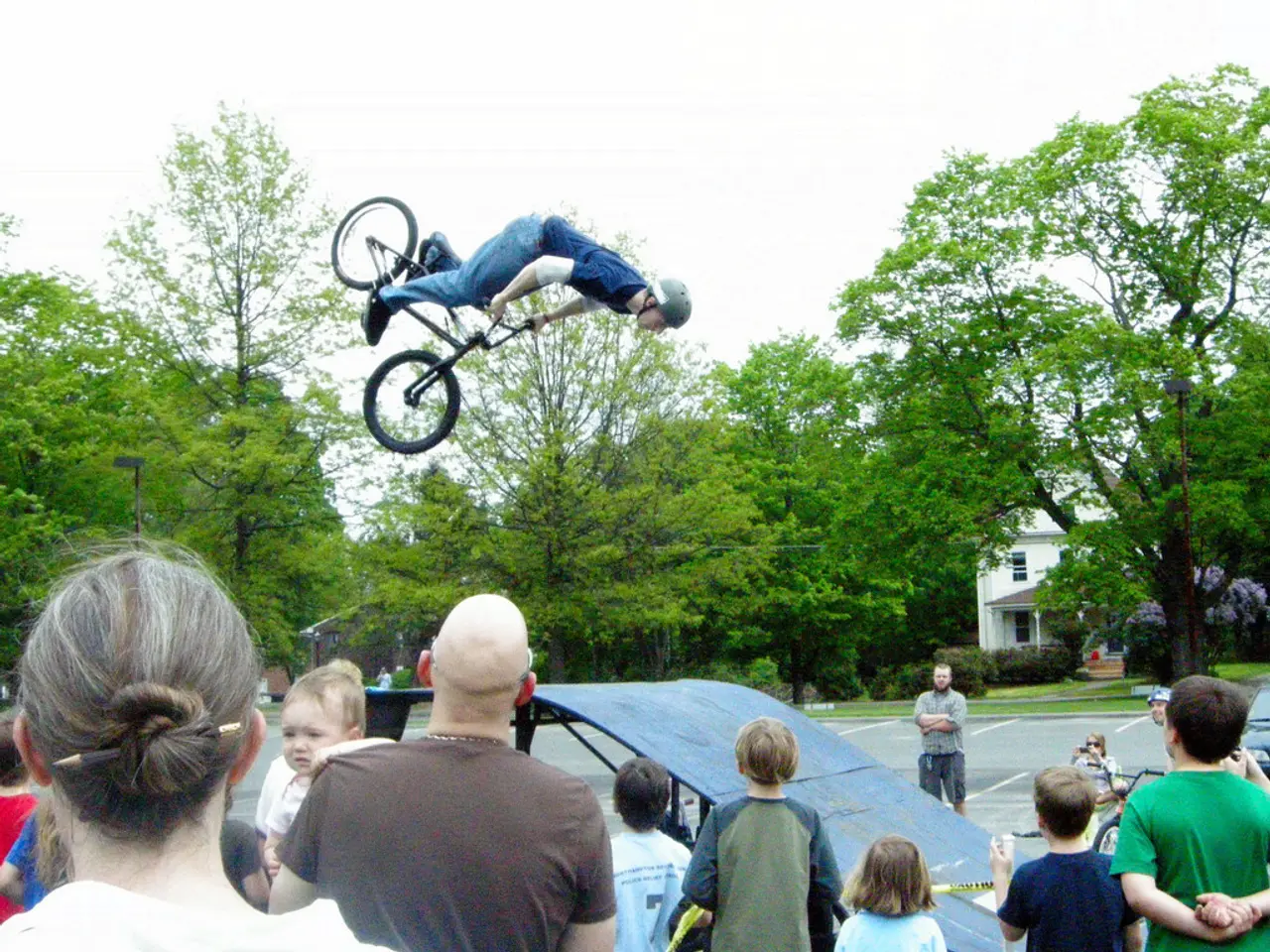Advocates Push for Allowing Women to Go Swimming Without Upper Garments
In a bid to challenge longstanding traditions and promote gender equality, Sanna Hotz and Amelie Werkle, two German activists, have been vocal about their experiences with discrimination in public swimming pools. The duo is now involved in the nationwide initiative "Equal Breasts for All," aiming to create a more inclusive environment for all swimmers.
Their journey began when Sanna Hotz was asked to put on a top or leave the pool in Friedrichshafen, a municipal pool that allows "topless" swimming. Amelie Werkle faced a similar situation at the Obereisenbach outdoor pool. Both women refused to comply, citing the discriminatory nature of such requests.
Their experiences mirror a broader issue in Germany, where some pools have historically required women to wear bikini tops while allowing men to swim shirtless. This practice, rooted in traditional social norms and perceptions about public decency and gender differences, has been under scrutiny in recent times.
The Berlin state government took a significant step in June 2025, announcing that all visitors to public pools are entitled to swim topless regardless of gender. This policy change reflects growing movements towards gender equality and body positivity, challenging the double standards that previously allowed men to go topless but required women to cover their chests.
Critics argue that such rules enforce outdated gender norms and discrimination by treating women's bodies as inherently sexual or indecent while men's bodies are normalized. Advocates believe everyone should have autonomy over how they present their bodies in public swimming spaces.
The movement towards change is not without opposition. Twelve percent of users in a poll placed their vote between the poles, while around 22% are against free sunbathing and swimming. In Weingarten, Sanna Hotz has been banned from all municipal pools. Despite these challenges, the initiative continues to gain momentum.
Sanna Hotz and Amelie Werkle argue that they were thrown out of the pools because they are women, and they want the same rights as men. They have had many discussions with lifeguards about "topless" swimming in various pools in the region and started a petition on the "OpenPetition" platform. Although it received around 70 signatures, it was not pursued further.
The city of Tettnang has recently adjusted its pool regulations to discuss the possibility of allowing "topless" swimming. The bathing regulations state that bathing attire must cover "primary and secondary sexual organs," a formulation that Sanna Hotz and Amelie Werkle find absurd, stating that it includes not only the female breast but also male secondary sexual characteristics like beard growth, chest and back hair, or the Adam's apple.
In August 2023, Sanna Hotz was escorted out of the Obereisenbach outdoor pool for not wearing a bikini top. A large majority of readers on Schwäbische.de's poll voted that women should be allowed to swim without a top, with 66% in favor. The initiative collects experiences from bathers and maintains an informal bathing map on its website.
As the debate continues, it is clear that Sanna Hotz and Amelie Werkle are at the forefront of a significant shift in attitudes towards gender equality and body positivity in German swimming pools. Their efforts, along with the Berlin policy change, signal a move towards a more inclusive and equitable environment for all swimmers.
[1] Berlin State Government, Press Release, June 2025. [2] Schwäbische.de, Poll Results, August 2023. [3] European Journal of Gender Equality, Article, March 2024.
Sanna Hotz and Amelie Werkle have expanded their mission beyond pool equality, aiming to create a more inclusive environment in the health-and-wellness sector, particularly in women's health. They have initiated discussions about women's right to make choices regarding their bodies in these settings, using their experiences as a stepping stone for change.
Their activism extends beyond swimming pools, with a focus on challenging gender norms in other regions as well. They have been active in advocating for region-wide health-and-science policies that promote gender equality and body positivity.




